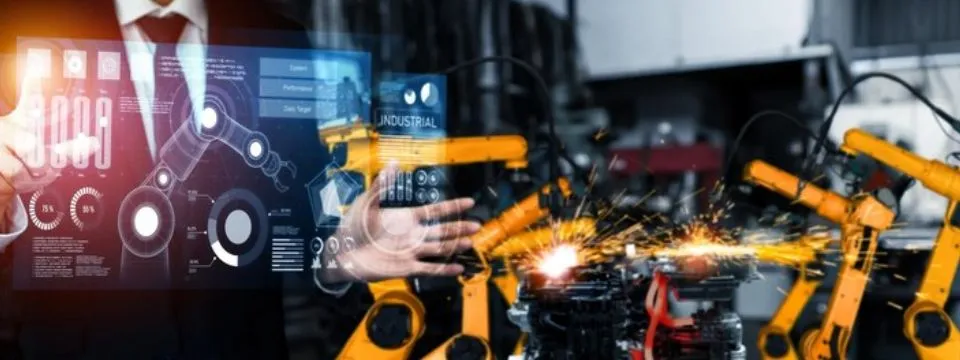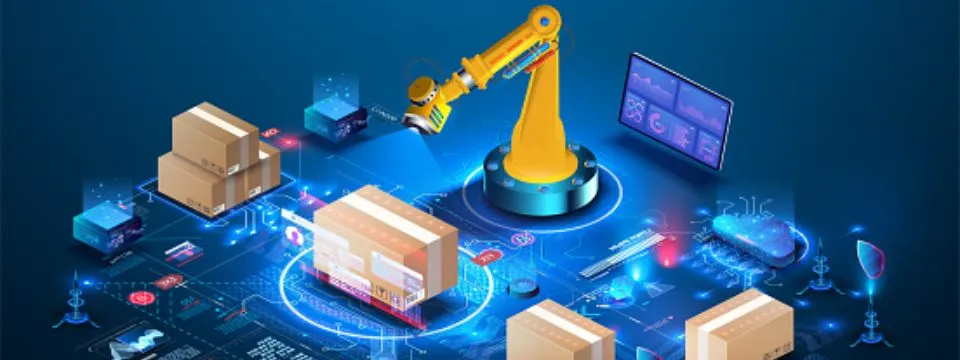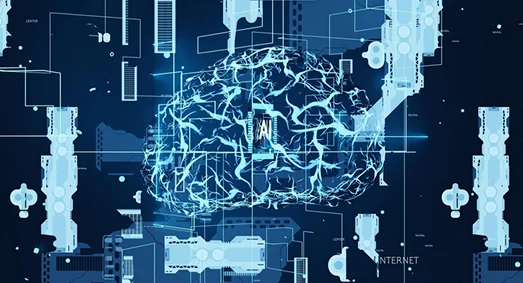AI’s Role in Revolutionizing Custom Software Development for Manufacturing
Author: Laila Meraj
27 December, 2024
The integration of artificial intelligence (AI) into custom software development is transforming manufacturing automation in today’s rapidly evolving industrial landscape. This synergy not only enhances operational efficiency but also drives innovation, enabling manufacturers to remain competitive in a global market.
This blog will explore how AI is revolutionizing custom software solutions tailored for the manufacturing sector, focusing on the benefits, applications, and pivotal role of companies like Xorbix Technologies in this transformation.

Understanding Custom Software Development in Manufacturing
Custom software development refers to creating software applications tailored to meet specific business requirements. In the manufacturing sector, this can range from custom application development for inventory management to bespoke solutions that integrate with existing machinery. The need for such tailored solutions arises from the unique challenges faced by manufacturers, including complex supply chains, diverse product lines, and the necessity for real-time data analysis.
Key Benefits of Custom Software Development
| Tailored Solutions | Unlike off-the-shelf software, custom solutions are designed specifically for the unique processes and requirements of a manufacturing company. |
| Scalability | Custom software can grow with the business, allowing manufacturers to adapt to changing market demands without significant overhauls. |
| Integration Capabilities | Custom solutions can seamlessly integrate with existing systems and machinery, enhancing overall operational efficiency. |
The Impact of AI on Custom Software Solutions
The incorporation of AI into custom software development for manufacturing brings several advantages:
- Automation of Repetitive Tasks: AI-powered software can automate routine tasks such as data entry and reporting, allowing employees to focus on more strategic activities.
- Enhanced Decision-Making: AI algorithms can analyze vast amounts of data quickly, providing insights that help manufacturers make informed decisions regarding production schedules, inventory levels, and resource allocation.
- Predictive Maintenance: By utilizing machine learning models, manufacturers can predict equipment failures before they occur, significantly reducing downtime and maintenance costs.
Applications of AI in Manufacturing Automation
AI’s role in manufacturing automation is multifaceted, significantly enhancing various aspects of the production process. Here are some key applications that illustrate how AI is reshaping the manufacturing landscape:
1. Quality Control
One of the most impactful applications of AI in manufacturing is in quality control. Traditional quality assurance methods often involve manual inspections, which can be time-consuming and prone to human error. AI-driven computer vision systems can inspect products in real-time, identifying defects and ensuring quality standards are met with remarkable accuracy. For instance, manufacturers can implement AI to monitor the production line continuously, assessing each item as it moves through various stages of production. This real-time analysis not only speeds up the inspection process but also reduces waste by ensuring that only products meeting quality standards proceed to packaging and distribution.
2. Supply Chain Optimization
Another critical application of AI in manufacturing is supply chain optimization. Machine learning models analyze historical data to forecast demand accurately, enabling manufacturers to optimize their supply chains effectively. By leveraging vast amounts of data from various sources, such as sales history, market trends, and even social media sentiment, AI can provide insights into future demand fluctuations.
This predictive capability allows manufacturers to adjust their inventory levels proactively, reducing excess stock and minimizing the risk of stockouts. Additionally, AI can streamline logistics operations by optimizing delivery routes and schedules based on real-time traffic data and weather conditions.
3. Energy Management
AI solutions are also revolutionizing energy management within manufacturing facilities. Energy consumption is a significant cost driver for manufacturers, making it essential to monitor and optimize usage effectively. AI technologies can analyze energy consumption patterns across different machines and processes, identifying areas where energy use can be reduced without compromising productivity.
4. Predictive Maintenance
Predictive maintenance is another transformative application of AI in manufacturing automation. By analyzing data from sensors embedded in machinery, AI algorithms can predict potential equipment failures before they occur. This proactive approach significantly improves efficiency by allowing manufacturers to schedule maintenance activities at optimal times rather than relying on reactive measures after a breakdown occurs.
5. Robotics and Automation
AI-powered robotics are increasingly being integrated into manufacturing processes for enhanced automation. These robots are equipped with advanced sensors and machine-learning capabilities that enable them to perform complex tasks with precision and speed. From assembly line operations to material handling, AI-driven robots can adapt to changing production demands dynamically.
6. Intelligent Automation
Intelligent automation combines robotic process automation (RPA) with AI technologies to streamline business processes across the manufacturing sector. By automating repetitive tasks such as data entry or order processing, manufacturers can free up valuable employee time for more strategic activities that require human insight.
AI algorithms enhance RPA systems by enabling them to learn from interactions and improve over time. This means that as these systems process more data, they become more efficient at identifying patterns and making decisions without human intervention.
Challenges in Implementing AI-Powered Solutions
While the benefits are substantial, integrating AI into custom software development does present challenges:
- Data Quality and Availability: Effective AI models require high-quality data. Manufacturers must ensure they have strong data collection processes in place.
- Skill Gaps: There is often a shortage of skilled professionals who can develop and maintain AI systems within manufacturing environments.
- Change Management: Transitioning to AI-driven processes requires cultural shifts within organizations, necessitating training and support for employees.
Future Trends in AI-Driven Manufacturing Automation
The future of manufacturing automation lies in increasingly sophisticated AI technologies. Some emerging trends include:
- Generative Design: Utilizing AI algorithms to create optimized design solutions based on specific constraints and requirements.
- Digital Twins: Creating digital replicas of physical assets that allow for real-time monitoring and simulation of manufacturing processes.
- Collaborative Robots (Cobots): Integrating AI with robotics to enhance human-robot collaboration on the factory floor.
Conclusion
The integration of AI into custom software development is reshaping the landscape of manufacturing automation. By leveraging advanced technologies, manufacturers can enhance efficiency, reduce costs, and improve overall productivity. Companies like Xorbix Technologies play a crucial role in this transformation by providing tailored solutions that meet the unique needs of the industry. For manufacturers looking to embrace digital transformation through innovative software solutions, partnering with a leading provider like Xorbix ensures access to cutting-edge technology tailored specifically to their needs.
Read more related to this blog:




